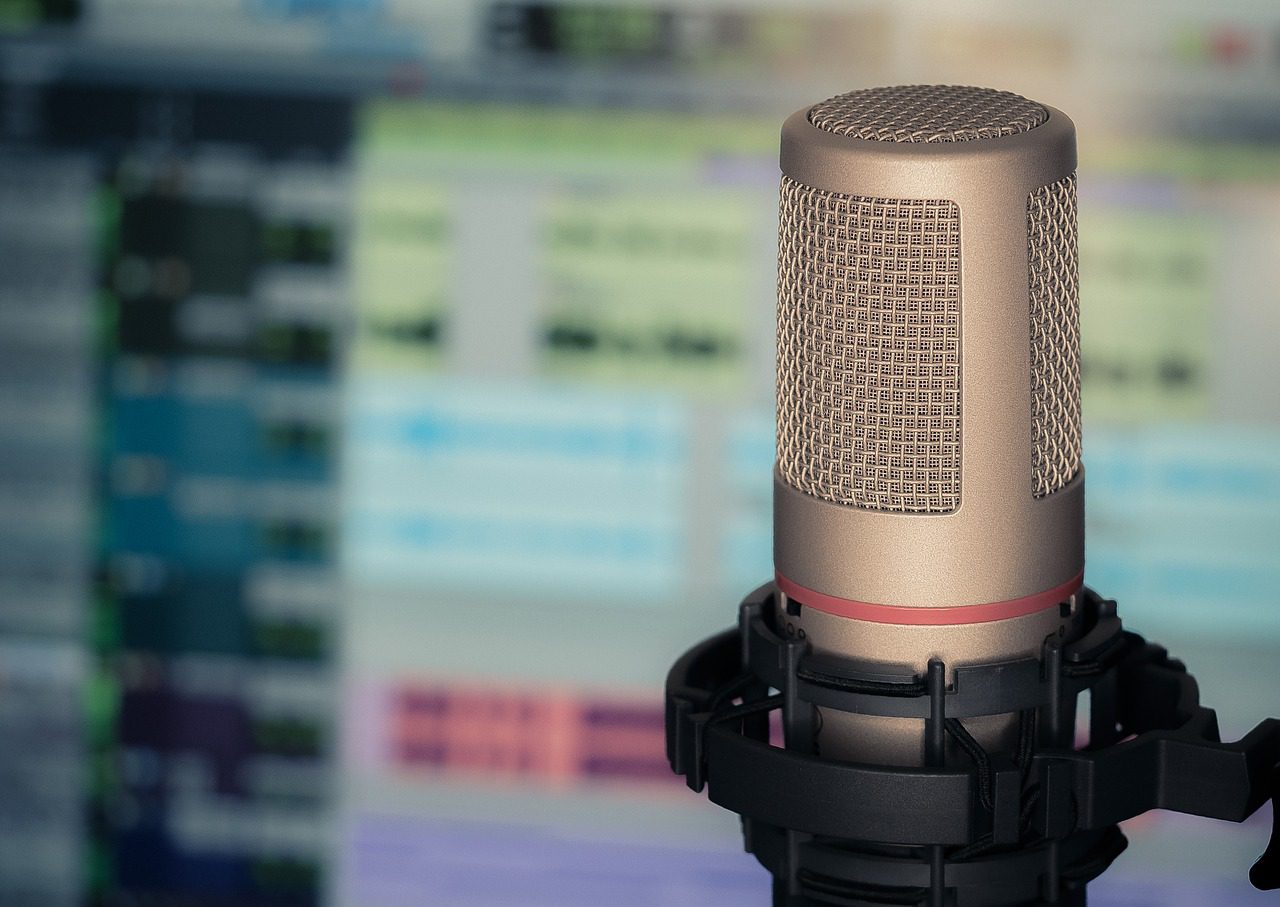BLUEGRASS RAMBLES: The Possibilities of Podcasts

Photo by Macb3t/Pixabay
Podcasts have evolved into a focused format aimed at committed enthusiasts with time to listen, think, and explore the world of their music, offering more information and insight about the music than just recordings played for you to hear. For listening to the music itself, there are plenty of other outlets; podcasts are for music fans interested in the people, history, technical details, and world from which music comes and in which it thrives.
A podcast is like a radio program on the internet. They stream on demand, varying in length and format depending on the owner/host. Podcasting provides easy access to people who think they have something valuable to say about content of any kind. They are particularly well-adapted for a niche like bluegrass, giving a platform to those who wish to broadcast. If you’re interested in starting your own podcast, here’s an article that can help you get started: I Started a Successful Podcast with Just $250 and You Can Too. Podcasts sometimes feature music, but generally steer away from playing entire recorded songs, which requires paying royalties.
Some podcasts are run by fans and people who just love to talk about their favorite music and artists, while others are made by musicians as a way to extend their connection with audiences. The Tim Shelton Podcast, from the founder and lead singer for NewFound Road, a bluegrass band that went through a variety of changes from traditional with a gospel influence to contemporary/progressive before disbanding this year, serves as a platform for Shelton to develop his career, explore ideas, express opinions, and entertain his listeners. Currently he’s
showcasing his voice and style in a series of shows called “Very Vintage Classics.” A few weeks ago, he posted his 300th podcast sharing his own experiences and thoughts on music, popular culture, and whatever else has wanted to talk about. Meanwhile, his podcast is advertiser supported. The show is articulate, thoughtful, and pretty unpredictable. It’s worth a listen.
I asked some friends for their thoughts about how to develop useful and engaging content about bluegrass in a podcast format. Ray Ulan, who produces The Bluegrass Experiment, a weekly hourlong music podcast featuring local or regional unsigned bands from far and wide, says he “tries to pack as much musical content as possible into each show, and even if I do play music from a known band, it will tend to be something that they have done that is original material, and generally somewhat obscure.” While podcasting is not for everyone, he says, he notes, “for musicians seeking a further side source of income, the podcast has huge upside potential with few entry costs.” For podcasts that build a sizable listenership, that income can come from advertising or sponsorships, or even, in some cases, sales of merchandise with the podcast’s logo.
There are a number of aggregators that host or provide podcasts, which can sometimes make them hard to find. (Here’s an interesting article on the current lack of a good podcast search and recommendation engine and why it matters.). Most of the podcasts I’ve found are offered by Google Podcasts. Here are a few bluegrass-themed podcasts you might like:
Keith Billik’s The Picky Fingers Banjo Podcast features interviews with some of the top bluegrass banjo players as well as Billik’s own take on how to increase your skills on the instrument. Billik is a banjo teacher with Elderly Instruments, a performer with a number of Midwestern bluegrass bands, and the soundman for the annual Midwest Banjo Camp. I listened to a recent episode featuring Jens Kruger. Billik asks cogent questions, listens well, and probes further, helping build a coherent, well-paced narrative. Though I’ve known Kruger for nearly two decades and we’ve chatted at length, I’ve never learned so much about him as I did in this hour-long interview.
The String, by Craig Havighurst, is a weekly interview podcast. His interview of bluegrass and country music Hall of Famer Ricky Skaggs is a classic for anyone interested in the growth of this music. The interview gives Skaggs room to be approachable and human. Havighurst wrote Air Castle of the South, the definitive history of Nashville’s WSM radio, and was the voice and interviewer of Music City Roots, which suspended production last year.
A more recent entry into the podcast world is Bluegrass Stories by Katy, Akira, and Howard, which presents hosts Katy Daley, Howard Parker, and Akira Otsuka interviewing bluegrass personalities including musicians, promoters, luthiers, instrument store owners, and more in a series of lively and informative podcasts. (You’ll be able to find Howard’s interview of me in an episode coming July 23.)
Podcasts represent great opportunities for listeners, fans, and creators. For musicians, podcasts can provide a possible alternative stream of income as well as opportunities to broaden their audience beyond recordings and performances. Listeners will be entertained and informed by podcasts they select. They can introduce you to the personalities behind the music you love and reveal insights you might not otherwise have been exposed to. As with many other elements of the internet, it’s hard to say what the future of podcasts will be, but for the present, they’re an exciting way to personalize your musical experience and deepen your appreciation and understanding of the songs and artists you love.




